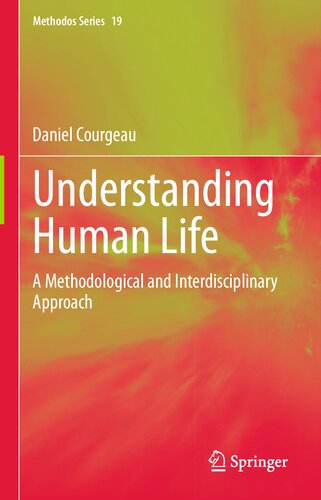

Most ebook files are in PDF format, so you can easily read them using various software such as Foxit Reader or directly on the Google Chrome browser.
Some ebook files are released by publishers in other formats such as .awz, .mobi, .epub, .fb2, etc. You may need to install specific software to read these formats on mobile/PC, such as Calibre.
Please read the tutorial at this link: https://ebookbell.com/faq
We offer FREE conversion to the popular formats you request; however, this may take some time. Therefore, right after payment, please email us, and we will try to provide the service as quickly as possible.
For some exceptional file formats or broken links (if any), please refrain from opening any disputes. Instead, email us first, and we will try to assist within a maximum of 6 hours.
EbookBell Team

5.0
90 reviewsThis book addresses the challenge of understanding human life. It compares our life experience with the attempts to grasp it by astrologers, eugenicists, psychologists, neuroscientists, social scientists, and philosophers. The main opposition among these specialties lies between understanding and misunderstanding. The book also addresses the central methodological difficulty of capturing a human life.
It is first examined how certain approaches may lead to a misunderstanding of human life. The book contrasts the example of astrology―an accepted practice in ancient civilizations, but now classified among the pseudosciences―with astronomy, a full-fledged science since Galileo’s time. Another, more recent approach regards human life as predetermined by genes: the methods used by eugenicists, and later by political regimes under the name of hereditarianism, came to compete with genetics. A broader analysis shows how astrology and eugenicism are not truly scientific approaches.Next, the book looks at the ways of capturing an imaginary or real human life story. A comprehensive approach will try to fully understand their complexity, while a more explanatory approach considers only certain specific phenomena of human life. For example, demography studies only births, deaths, and migration. Another crucial factor in the collection of life histories is memory and its transmission. Psychology and psychoanalysis have developed different schools to try to explain them.
The book concludes with a detailed discussion of the concepts and tools that have been proposed in more recent times for understanding the various aspects of life stories: mechanisms, systems, hermeneutics, and autonomy.